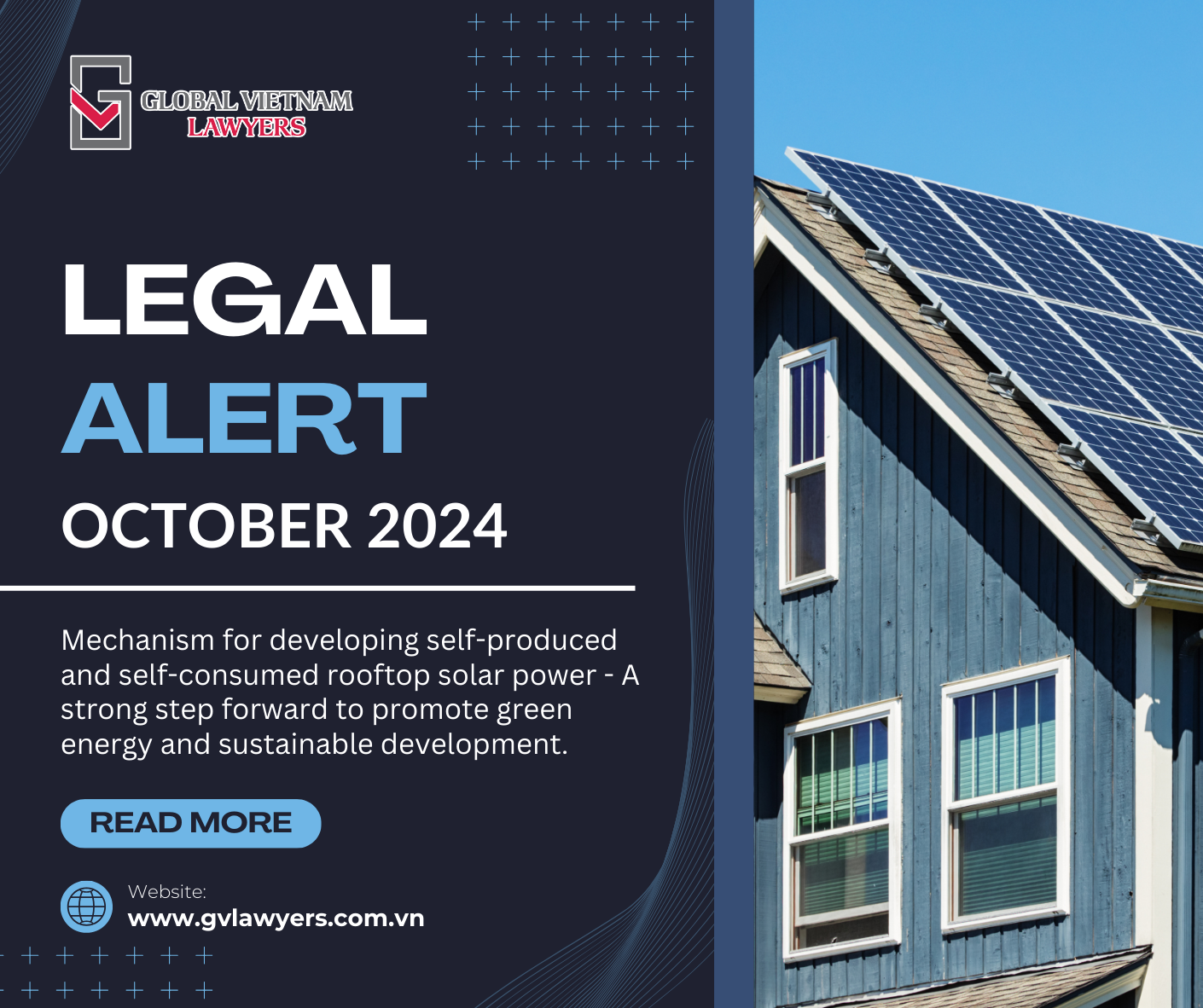After a long wait, on October 22, 2024, the Government issued Decree 135/2024/ND-CP (“Decree 135/2024”) regulating the mechanism and policies to encourage the development of self-produced and self-consumed rooftop solar power (“RSP”). Decree 135/2024 takes effect right from the date of signing, October 22, 2024, with policies to encourage the development of RSP that people and enterprises have been long waiting for.
1. Subjects of application
Decree 135/2024 has an expanded scope of application for all subjects, including private houses, public offices, industrial parks, industrial clusters, export processing zones, high-tech zones, economic zones, production establishments, and business establishments constructed nationwide.
2. Policies to encourage the development of self-produced and self-consumed RSP
For the purpose of encouraging the development of self-produced and self-consumed RSP, Decree 135/2024 introduces 9 policies as follows:
(a) Organizations and individuals installing self-produced and self-consumed RSP will be exempted from the electricity operation license and subject to no limit on the installation capacity if they fall into 1 of the following 3 cases: (i) RSP is not connected to the national power system; (ii) a device is installed to prevent power backflow into the national power system; and (iii) households and individual houses developing self-produced and self-consumed RSP with a capacity of less than 100 kW.
(b) Self-produced and self-consumed RSP connected to the national power system, if not fully used, may be sold to the national power system but not exceeding 20% of the actual installation capacity if (1) the power production capacity is within the plan; or (2) RSP systems are used for households and individual houses with a capacity of less than 100 kW, specifically:
(i) Vietnam Electricity Group will pay organizations and individuals for the surplus electricity output generated to the national power system but not exceeding 20% of the actual installation capacity.
(ii) The sale price of surplus electricity generated to the national power system is equal to the average market electricity price in the previous year announced by the power system and electricity market operator.
(iii) Self-produced and self-consumed RSP installed on the roof of a construction work that is an office or a construction work identified as a public asset will not be purchased.
(c) Preferential tax policies shall be applied to the sale of self-produced and self-consumed RSP.
(d) Administrative procedures related to self-produced and self-consumed RSP are simplified in accordance with current specialized laws.
(e) Construction works with self-produced and self-consumed RSP systems are not required to register amendments or additions in relation to energy land and functions as prescribed by law.
(f) Self-produced and self-consumed RSP of households and individual houses; offices and works identified as public assets are considered as technological equipment attached to construction works.
(g) Households and individual houses developing RSP for self-production and self-consumption are exempted from or do not have to register amendments to their business licenses.
(h) Organizations and individuals are encouraged to decide at their own discretion the installation of a battery energy storage system (BESS) to ensure safe and stable operation of the power system.
Thus, the promulgation of Decree 135/2024 opens a clearer legal corridor for the development of self-produced and self-consumed RSP, while promising to bring many practical benefits to people and enterprises. The simplification of administrative procedures helps enterprises save time and costs in applying for licenses and connecting RSP systems to the grid. Tax incentives help enterprises reduce initial investment costs and create favorable conditions for the development of renewable energy. Support for electricity prices and power connection mechanisms create a healthy competitive environment and many development opportunities for enterprises. In addition, the mechanism to encourage people and enterprises to self-produce and consume solar energy also contributes to environmental protection and reduces dependence on the national grid. This is considered an important step in promoting green energy and sustainable development.









